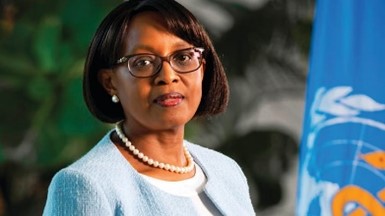Don’t undermine Ebola gains -MSF cautions Liberians
As the number of new Ebola cases reported in the country has declined in recent weeks, MSF is warning that international aid response must rapidly adapt to this new phase of the epidemic in Liberia, or risks undermining the progress made against Ebola.
In a statement issued in Monrovia, Doctors Without Borders said unlike in neighbouring Guinea and Sierra Leone where cases are on the rise, MSF teams in Liberia are witnessing a decline in the number of Ebola patients admitted to Ebola Treatment Units (ETUs) for the first time since the beginning of the Ebola epidemic.
At present, MSF’s 250-bed ETU in Monrovia ELWA3 is treating around 50 patients. In Foya, northern Liberia, the number of patients reached zero on 30 October, with no confirmed cases since that date. Case numbers could rise again as they have done in Guinea where, following two significant dips in the number of admissions to MSF facilities, patient numbers are again increasing.
“In Liberia, the international response is finally getting off the ground. Financial support is starting to flow into the country and huge resources are being put into constructing large-scale Ebola isolation centres,” says Fasil Tezera, MSF head of operations in Liberia.
“Isolation units in Monrovia and certain parts of the country now have adequate capacity and we must adapt the strategy if we want to stay ahead of the curve and beat the epidemic. Priority should be given to a more flexible approach that allows us to respond rapidly to new outbreaks and get the regular healthcare system safely up and running again”, says Fasil.
Agile and well-equipped rapid response teams should be deployed quickly to actively investigate hotspots wherever they occur and mount a comprehensive response. This includes isolating patients, tracing people who have been in contact with the sick, organising safe burials, carrying out disinfection of contaminated areas, and mobilising local communities.
“In Foya, Lofa County, we believe this comprehensive approach, as well as active engagement by the community, has led to a steady reduction of cases across the county,” explains Dr Nico Heijenberg, MSF emergency coordinator. “Trust and understanding by the community is hugely important in acceptance of medical activities and successfully containing the virus.”
[bsa_pro_ad_space id=1]
Restarting essential healthcare services is also a critical component of an Ebola response. The Liberian healthcare system has virtually collapsed because of the epidemic. Many hospitals and clinics are closed, and those that are running turn feverish or vomiting patients away for fear they have Ebola. MSF is adapting its response in Monrovia by carrying out a mass distribution of anti-malarial prophylaxis/treatment and opening an Ebola screening point next to the 200-bed government Redemption Hospital, assisting it to reopen safely.
“Infection control measures like triage points should be implemented urgently within regular health facilities in order to reduce the spread of Ebola and stop people dying from preventable diseases and unmanaged complications,” adds Dr Heijenberg. “Much of the international aid funding for the Ebola response is earmarked for specific projects. Instead, international donors and implementing organisations should deploy their resources with flexibility so that they can be used where they are needed most.”
In West Africa, MSF is currently responding to the Ebola outbreak in Guinea, Liberia and Sierra Leone. In Mali, an MSF team provides technical support to the Ministry of Health. MSF currently employs around 3,300 staff across the region and operates six Ebola case management centres and two transit centres. Since the beginning of the outbreak, MSF has admitted more than 5,600 patients and among them more than 1,500 in ELWA3.
MSF’s West Africa Ebola response started in March 2014 and counts activities in Guinea, Liberia, Mali and Sierra Leone. MSF currently employs 263 international and around 3,077 locally hired staff in the region. The organisation operates six Ebola case management centres (CMCs), providing approximately 600 beds in isolation, and two transit centres. Since the beginning of the outbreak, MSF has sent more than 700 international staff to the region and admitted more than 5,600 patients, among whom around 3,500 were confirmed as having Ebola. More than 1,400 patients have survived.
More than 1,107 tonnes of supplies have been shipped to the affected countries since March. The provisional 2014 budget for MSF’s Ebola response in West Africa is €51 million. MSF will continue its operational response in 2015, and is currently estimating operational budgets beyond 2014. So far, MSF has approved institutional funding for a value of €20M and have raised about €28M in private funds.
The MSF in Monrovia is running a 240-bed Ebola case management centre known as ELWA 3 and has restarted a campaign for community health promoters to go door to door, raising awareness about how to avoid infection. More than 50,000 home protection and disinfection kits have been distributed in Monrovia, and distribution is ongoing. Anti-malaria kits are now being distributed to 350,000 people in densely populated areas of Monrovia.















